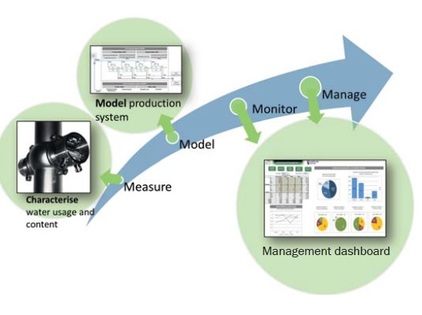Projects
The SMART team are involved in high profile projects with national and international impact, attracting funding from diverse sources including research councils and industrial partners. Below are a selection of the projects which SMART team members have played an integral role.
-
Product Innovation is increasingly used to enhance people’s lifestyles while reducing the negative impact of manufacturing on the planet.
read more -
Identification of new opportunities for improving energy efficiency in food manufacturing
read more -
System-change for unavoidable food waste
read more -
The aim of this project is to develop and test flexible, non-invasive water analysis instrumentation to monitor in-plant effluent flows.
read more -
Establishing feasibility of the application of distributed manufacturing to specific products in the food sector in order to reduce environmental impact and support local economies.
read more -
Reformulated food products for health and sustainability
read more -
Improve FSC decisions by using the 'Internet of Things' to reduce resource consumption and negative environmental impacts
read more -
Exploring what it means to be resilient for actors in UK food supply chains
read more -
Consumer food waste has the highest level of environmental and economic negative impacts compared to waste generated at other stages of the supply chain.
read more -
A framework to optimise decision-making with regard to food waste management
read more -
This project proposes a systematic framework for addressing the ‘Societal Value’ of toys as part of an integrated sustainability assessment and allows the evaluation and comparison beyond products’ shared functionality.
read more -
This research explores the application of reconfigurable processes within recycling systems.
read more -
Embedding environmental considerations into manufacturing decisions.
read more -
The overall aim of the research is to facilitate the principle of “doing more with less” in terms of resources consumed in manufacturing applications.
read more -
This project investigated how sustainability considerations can be systematically incorporated into product design processes.
read more -
The overall aim of this research is to design and develop the next generation of hybrid-vehicle recycling technologies.
read more -
Understanding the availability of waste energy from manufacturing processes.
read more -
This project aims to augment the current level understanding of waste management by addressing key areas including technology, modelling and decision making.
read more -
The overall research aim was to enable the environmental footprint of plastics packaging to be reduced through the most appropriate selection and utilisation of biopolymers whilst providing companies with a design framework to support their sustainable pa
read more -
The overall aim of the research was to investigate the water usage at the process level within manufacturing applications and to facilitate water reduction through the development of a water simulation model and a water optimiser decision support tool.
read more -
Improve the environmental footprint and long-term sustainability of the packaging industry
read more -
A review of end-of-life options for solid -oxide fuel cells.
read more -
This project investigates reconfigurable recycling systems to support closed-loop manufacturing of shoes, leather goods and products containing similar materials.
read more -
Improving WEEE recovery through the application of a novel recycling process planning framework.
read more
























